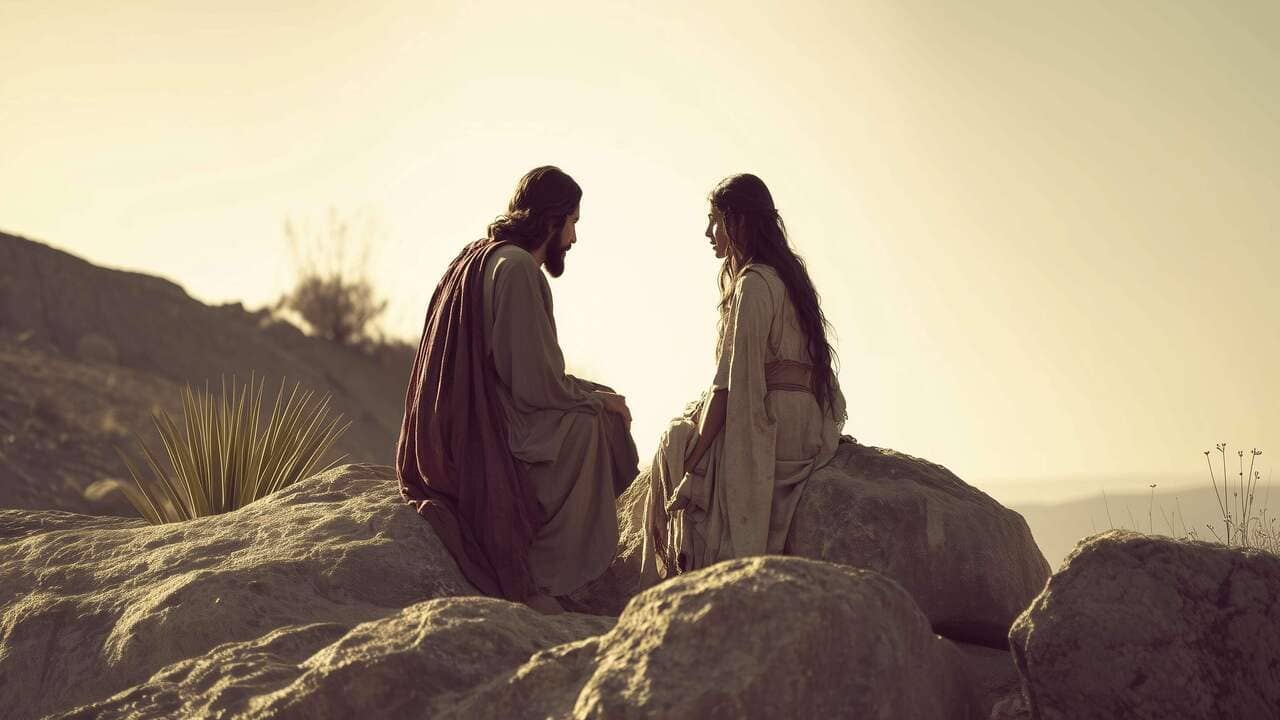Thorn Ville Church – The story of Hagar is one of the most compelling narratives in the Bible. It is not only a tale of survival but also a reminder of how God sees and cares for those who feel invisible. Found in Genesis 16 and 21, the account reveals the struggles of a woman caught between cultural traditions, personal suffering, and divine intervention. Far from being just a supporting character in the life of Abraham and Sarah, Hagar represents strength, resilience, and faith that transcends hardship.
Her journey takes readers through moments of rejection, wandering in the wilderness, and ultimately experiencing God’s comfort. Today, many people find themselves reflected in her struggles feeling abandoned or overlooked yet discovering hope when they least expect it. In this article, we will explore several major themes within the story of Hagar and how they remain relevant to modern life.
1. God’s Care for the Marginalized
The story of Hagar begins with her identity as an Egyptian servant in the household of Abraham and Sarah. She had little choice over her circumstances, and her life was shaped by the decisions of others. When Sarah could not conceive, she gave Hagar to Abraham as a surrogate, a practice accepted in ancient cultures but one that left Hagar vulnerable.
Despite her low social position, the Bible emphasizes that God noticed her. When Hagar fled into the wilderness after conflict with Sarah, it was God’s angel who appeared to her. This moment highlights a profound truth: even when society overlooks someone, God values their life and future. For readers today, this part of the story of Hagar reminds us that divine compassion extends to all, especially the marginalized.
Also Read : The Donkey That Spoke in the Bible and Changed a Prophet’s Fate
2. El Roi – The God Who Sees Me
One of the most striking revelations in the story of Hagar is her encounter with God in the wilderness. There, she gives God a unique name: El Roi, which means “the God who sees me.” This is the only time in the Bible where someone names God in such a personal and intimate way.
Hagar’s declaration demonstrates how deeply she felt acknowledged by God at her lowest moment. Many people can relate to this feeling times when they feel invisible, ignored, or forgotten. The phrase El Roi continues to inspire faith communities today, serving as a reminder that no matter how isolated someone may feel, they are never beyond God’s vision and care.

3. Lessons from Sarah’s Impatience
The conflict in the story of Hagar also teaches lessons through Sarah’s impatience. Rather than waiting for God’s promise of a child, Sarah sought her own solution, involving Hagar in a plan that ultimately led to jealousy and division.
This part of the narrative warns about the consequences of acting out of fear and frustration rather than trusting divine timing. In our modern lives, impatience often leads us into choices that bring regret. The story of Hagar illustrates that while human plans may falter, God’s promises unfold in ways that surpass human understanding.
4. God’s Provision in the Wilderness
Twice in the story of Hagar, she finds herself in the wilderness. The first time, she flees from Sarah’s mistreatment, and the second time, she is sent away with her son Ishmael. Both experiences bring her to the edge of despair, yet both become opportunities for God to intervene.
In Genesis 21, Hagar places her son under a bush, unable to watch him die of thirst. At this moment, God opens her eyes to a well of water nearby. This act of provision is more than a physical rescue it symbolizes hope in times of hopelessness. For readers, it is a reminder that in the most desperate situations, God’s help may come in unexpected forms.
5. Modern Reflections on the Story of Hagar
The relevance of the story of Hagar extends far beyond its ancient context. Today, it resonates with people who face oppression, displacement, or loneliness. Like Hagar, many experience moments when they feel trapped in circumstances beyond their control. Her narrative encourages them to trust that even in those times, they are seen and valued by God.
Churches and Bible study groups often revisit this story to discuss themes of resilience, divine care, and social justice. Hagar’s life challenges believers to extend compassion to those society may overlook. It also inspires personal faith, teaching that God’s promises are not limited to certain people but reach everyone who seeks Him.
Closing Thoughts
The story of Hagar is not a side note in biblical history it is a profound testimony of God’s faithfulness to those in distress. From her experience, we learn about patience, trust, and divine provision. Most importantly, we are reminded that God sees every individual, no matter their social status or personal struggles.
This Article About The Story of Hagar Written by: Sarah Azhari | Editor: Micheal Halim
Information Source: Hagarusa.org
